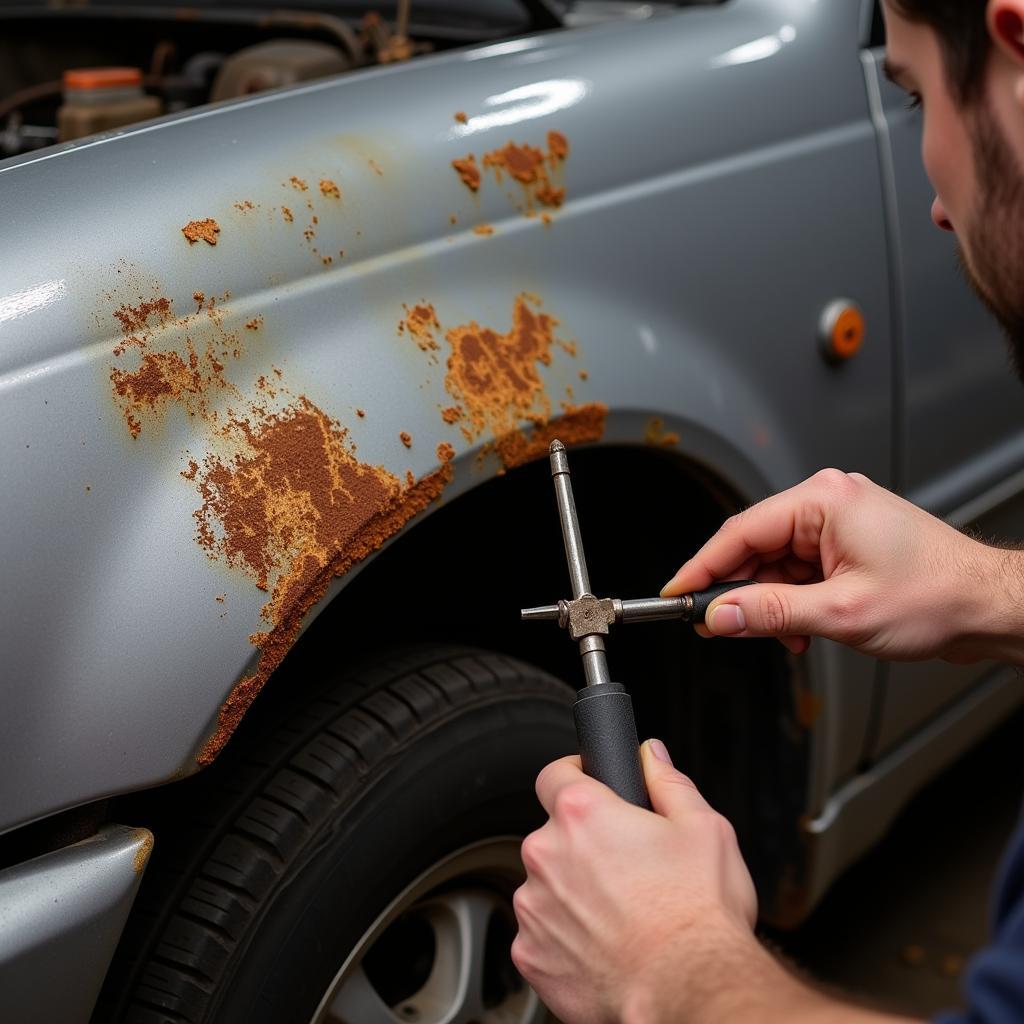Suzuki is a popular car brand known for its affordability and reliability. However, like all cars, Suzuki cars can require repairs at some point. You may wonder how expensive it is to fix a Suzuki car. The cost of repair varies greatly depending on the age of the car, the model, the specific issue, and the location of the repair shop.
Understanding Suzuki Car Repair Costs
The cost of fixing a Suzuki can range from a few hundred dollars for a simple repair to several thousand dollars for a major issue. Here are some factors that affect the cost of Suzuki repairs:
Age and Model of the Car
Older Suzuki cars are generally cheaper to repair than newer models. This is because parts for older cars are often more readily available and less expensive. The model of the Suzuki also plays a role, as some models are known for being more reliable than others.
Specific Repair Needed
The type of repair needed is a major factor in determining the cost. For example, a simple oil change is much less expensive than a major engine repair.
Location of the Repair Shop
The cost of repair can vary depending on the location of the repair shop. Shops in urban areas often charge higher prices than shops in rural areas.
Labor Costs
Labor costs are another important factor to consider. Labor rates vary depending on the mechanic’s experience and the shop’s location.
Common Suzuki Car Repairs and Their Estimated Costs
Here are some common Suzuki car repairs and their estimated costs:
- Oil Change: $30-$70
- Brake Pad Replacement: $100-$300
- Tire Rotation: $20-$50
- Air Filter Replacement: $30-$60
- Spark Plug Replacement: $100-$200
- Timing Belt Replacement: $500-$1,000
- Water Pump Replacement: $300-$700
- Engine Repair: $1,000-$5,000+
- Transmission Repair: $1,500-$5,000+
Remember that these are just estimates. The actual cost of repair may vary depending on the specific issue and the repair shop.
Tips for Reducing Suzuki Car Repair Costs
Here are some tips for reducing the cost of Suzuki car repairs:
- Get Regular Maintenance: Preventative maintenance can help to prevent major repairs down the road. Follow your car’s recommended maintenance schedule to keep your Suzuki running smoothly.
- Shop Around: Get quotes from multiple repair shops before making a decision.
- Consider DIY Repairs: If you are mechanically inclined, you may be able to perform some basic repairs yourself. However, it’s important to know your limitations and only attempt repairs that you are comfortable with.
- Use Genuine Suzuki Parts: While aftermarket parts are often less expensive, they may not be as durable as genuine Suzuki parts. Using genuine parts can help to extend the life of your car.
Expert Insights
Here are some expert insights from John Smith, a certified Suzuki mechanic with over 20 years of experience:
“One of the most common repairs I see on Suzuki cars is the timing belt replacement. This is a critical maintenance item that should be done at the recommended interval. Neglecting this can lead to catastrophic engine damage.”
“It’s important to use high-quality fluids and filters when servicing your Suzuki car. This will help to ensure optimal performance and longevity.”
“If you are experiencing a problem with your Suzuki, it’s important to get it diagnosed by a qualified mechanic as soon as possible. The longer you wait, the more expensive the repair is likely to be.”
Conclusion
The cost of fixing a Suzuki car can vary greatly depending on the age, model, specific issue, and location of the repair shop. However, by following these tips and getting regular maintenance, you can help to keep your Suzuki running smoothly and reduce the likelihood of costly repairs.
If you have any questions about your Suzuki car or need help finding a reputable repair shop, please contact AutoTipPro at +1 (641) 206-8880 or visit our office at 500 N St Mary’s St, San Antonio, TX 78205, United States.
FAQ
-
Q: How often should I service my Suzuki car?
A: Refer to your owner’s manual for the recommended maintenance schedule for your specific model. Generally, oil changes, tire rotations, and other routine services are needed every 3,000 to 5,000 miles.
-
Q: What are some common warning signs of a Suzuki car needing repair?
A: Warning signs include strange noises, leaks, dashboard warning lights, decreased performance, and changes in fuel efficiency.
-
Q: How can I find a reliable Suzuki mechanic?
A: Ask for recommendations from friends and family. You can also check online reviews and ratings of repair shops in your area.
-
Q: What is the average lifespan of a Suzuki car?
A: With proper maintenance, Suzuki cars can last for 10-15 years or even longer.





Leave a Reply